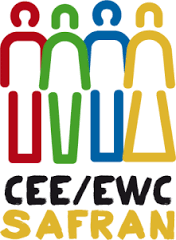Optimizing the EWC work
 Once the agreement for establishing the European works council has been signed, the day-to-day activity of the EWC can begin. It is essential to set up contacts between the delegates of all countries involved and to develop a common position towards the group's management. In order to avoid intercultural misunderstandings and to build a long-lasting relationship with one another, it is necessary to have an in-depth understanding of industrial relations and the different labour legislations in the countries involved.
Once the agreement for establishing the European works council has been signed, the day-to-day activity of the EWC can begin. It is essential to set up contacts between the delegates of all countries involved and to develop a common position towards the group's management. In order to avoid intercultural misunderstandings and to build a long-lasting relationship with one another, it is necessary to have an in-depth understanding of industrial relations and the different labour legislations in the countries involved.
Many European works councils hold training sessions, which can be organized by our trainers before or after the plenary or steering committee meetings. Suggestions on a selection of subject matters may be found on our → seminar webpages.
It is important to have clear rules for working with one another internally. What roles do the steering committee and plenary assembly play? What are the procedures for elections and for the adoption of resolutions? These questions can be settled in a set of internal rules of procedure.
The functioning of the select committee is of particular importance
Between plenary meetings the select committee deals with the day-to-day operations and is the first contact for the management in restructuring matters. The new EU Directive states that it "must benefit from conditions enabling it to exercise its activities on a regular basis". The number of meetings is not fixed, which leaves a wide margin of discretion. It is essential to have regular contact with the national employee representatives (and if there are none: with individual employees), and even in sites which are not directly represented in the EWC. → Further information on the work of the select committee
European works councils have a right to external experts
The subsidiary requirements include provisions for at least one paid external expert for each meeting. This does not have to be a natural person. An "expert" can be also a legal person, such as a consulting firm. In France this has already been the working practice for many years. → Background report
Where required, one consulting firm, such as for example the EWC Academy, then works with several advisors on different subject matters for one individual European works council. This may include advice on legal, economic and intercultural issues, and especially also assistance during consultation procedures. → Further information on consultation procedures in the EWC
Our support as experts includes:
- Planning for organizing and running effective EWC meetings (agenda, chairing, discussions with management etc.)
- Regular participation to, or moderation of EWC meetings
- Advice to the select committee for improving EWC work
- Suggestions on work activities in comparison with other companies
- Up-to-date news on recent legal developments and court proceedings
- Integrating new countries / new representatives into EWC activities
- Elaboration of work roadmaps (e.g. working time, occupational health and safety, equal treatment, training and skills development, corporate social responsibility)
- Handling management strategies such as outsourcing, corporate spin-offs, mergers etc.
Two examples of our work

During a project meeting held in Budapest in June 2012 (photo), the Donata Holding SE works council developed an internet based reporting system for financial data and key employment figures. The goal of this tool is to make better use of the information and consultation rights of the SE works council in the early stages before any cross-border restructuring.

In April 2018, the newly elected European works council of Mayr-Melnhof Packaging met for its first plenary meeting in Vienna (photo). It is based on the subsidiary requirements after negotiations on a revision of the old "voluntary" EWC agreement had failed. With support from the EWC Academy, the new legal basis for its work was analyzed and the flow of a consultation procedure elaborated.
Further examples:
→ Unilever → Johnson & Johnson → Generali → Seiko Epson → Ingersoll Rand → BCD Travel



 The European Commission published an empirical study in 2023 of a number of criteria that are relevant to various aspects of the new EWC Directive, including its national implementation and an evaluation of case law in the individual EU countries.
The European Commission published an empirical study in 2023 of a number of criteria that are relevant to various aspects of the new EWC Directive, including its national implementation and an evaluation of case law in the individual EU countries.

